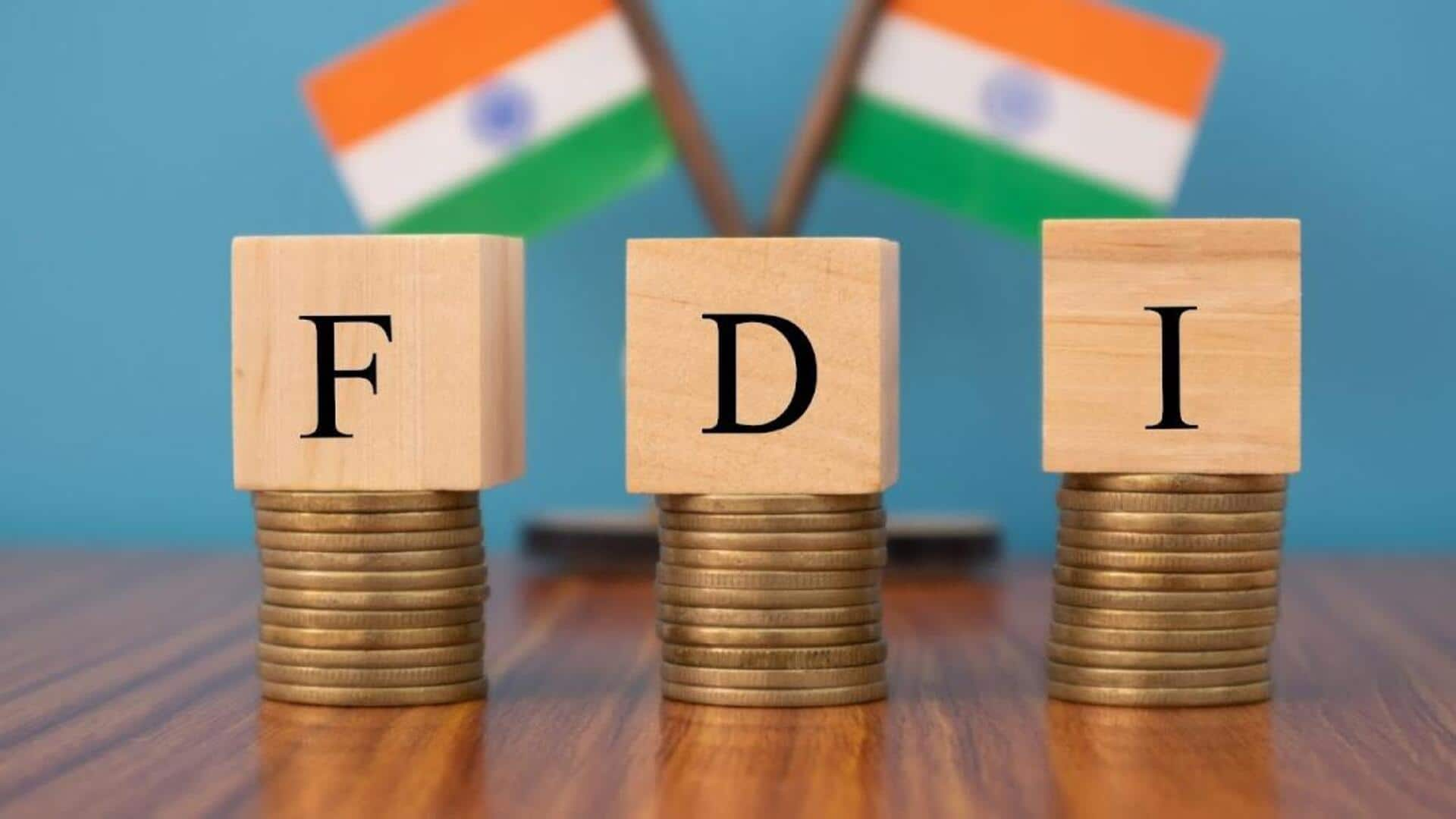
Modi government planning regulatory mechanism for monitoring FDIs
What's the story
The Indian government is mulling over setting up a foreign investment regulatory mechanism.
This proposed system, which is still in the discussion phase, would take care of post-investment reviews and monitoring in the country.
The main goal is to ensure that all foreign direct investments (FDIs) are not just good for the economy, but also come from legitimate sources.
Investment magnet
India's appeal as a major FDI destination
India is becoming a hotspot for foreign direct investments (FDIs), and it's easy to see why.
With 1.4 billion people, stable policies, a young workforce, and great returns on investments, it's a no-brainer.
The government has been on a roll, making things easier for overseas investors by cutting down on red tape and simplifying processes.
Plus, they've also relaxed FDI rules in sectors like space, e-commerce, pharma, and civil aviation, among others.
Surge
'Make in India' initiative boosts domestic and foreign investments
The government's push to create a better business vibe, eliminate corruption, and focus on new sectors like electronics has really given a boost to the 'Make in India' initiative.
This has resulted in a surge of both domestic and foreign investments.
In fact, over the last decade, FDI inflow has shot up by a whopping 119%, hitting $667 billion compared to $304 billion in the previous decade (2005-14).
Fiscal growth
FDI in India sees significant rise this fiscal year
FDI in India has jumped 47.8% to $16.17 billion in the first quarter of this fiscal year.
This surge is largely due to strong inflows in sectors like services, computer, telecom, and pharma.
To sweeten the deal for foreign investors and give a boost to domestic manufacturing, the government is also on a mission to develop industrial townships loaded with top-notch infrastructure.
Most of the cash flow is coming from countries like Mauritius, Singapore, the US, the Netherlands, and UAE.
Expert opinion
Legal experts weigh in on need for dedicated FDI law
Legal experts are jumping into the debate, about whether India needs a specific law to tackle national security risks from foreign investments.
Saurav Kumar, a partner at IndusLaw, thinks having such a law could really bolster India's position on international law by laying down a clear legal foundation for turning down investments on national security grounds.